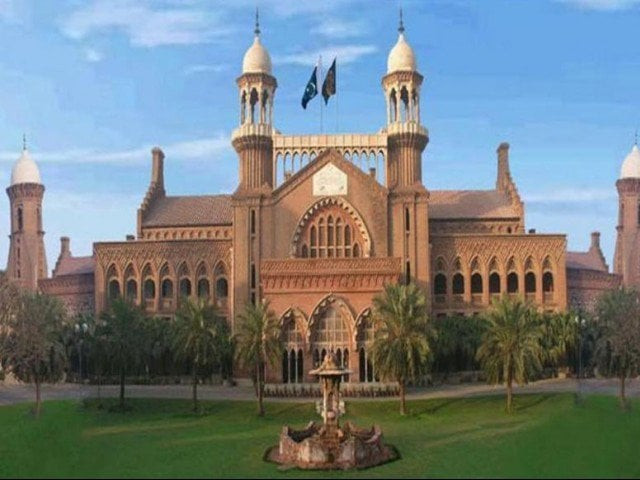Legal glitch: ‘No notification was issued for PRA’s establishment’
Detailed judgement questions transparency in chairman’s appointment

Lahore High Court. PHOTO: LHC.GOV.PK
The detailed judgment of a Lahore High Court (LHC) single bench declaring the Punjab Revenue Authority (PRA) illegal says that all notices and orders issued by the authority, proceedings initiated and appointments made by it were also illegal.
Justice Syed Mansoor Ali Shah had declared the PRA illegal in a short order on January 26. On February 4, an LHC division bench had suspended operation of the order on an appeal filed by the PRA.
In the detailed judgment issued on Friday, Justice Shah dismissed respondent’s reference to Section 8 of the PRA Act in favour of their argument that all activities of the authority could not be declared illegal on account of a defect in its establishment.
He said Section 8 of the Act was not applicable to the matter because the PRA had not been established in accordance with the rules.
He said that under Section 3(1) of the Act the government was required to issue a notification to establish the authority as a corporate body. However, he said no such notification had been issued.
He said Section 8 could not be read as a protection clause. He said it could not be relied upon to defend the failure of the government to establish the authority in accordance with the rules.
The judge said Section 8 should be read as a functional clause enabling the government to overcome procedural or temporary defects in the establishment of the authority. The section could be relied upon to protect PRA activities against minor hiccups, provided the authority had been established and was functioning under competent rules, he said.
The judge also discussed the procedure for the appointment of chairmen to the authority. He raised the question whether an open, fair, transparent, consultative and deliberative process had been followed for Iftikhar Qutub and Raheal Ahmed Siddiqui’s selection as chairmen? The questions raised were regarding advertisement of the vacancies; number of candidates applying for the posts; criteria for appointment; constitution of a selection board or committee; submission of a summary to the competent authority for approval in accordance with Rule 14(2) of the Rules of Business.
The judge also observed that the chairperson had held himself out as the PRA and undertaken the authority’s business on his own.
He said that in response to repeated inquiries about the procedure for appointment of the chairperson and the members, the counsel for the authority and the provincial government had categorically stated that there was no policy or decision on record.
The 12 PRA rules declared illegal in the judgement, released on Friday, concern sales tax on services. These rules cover registration and de-registration of businesses; filing of returns; adjustment of tax; specific provisions; computerised systems; authorised representatives; audit; adjudication and appeals; alternative dispute resolution; recovery; withholding and definitions of terms.
The judge noted that the rules had been approved without lawful establishment of the authority. He said the PRA chairman had singlehandedly approved the rules and appointed all staff.
The PRA Act of 2012 states that the authority would reform and modernise the tax collection system by providing assistance to taxpayers, promoting compliance with fiscal laws, establishing a progressive and professionally efficient tax management organisation.
The Section 3(1) of the Act says that the authority will be a body corporate with perpetual succession and a common seal, with power to enter into agreements, acquire, hold, manage and dispose of property and to sue and be sued in its name. About the organisation, the Section 3 (4) says that the authority shall have a chairperson and not less than four members appointed by the government.
Published in The Express Tribune, March 19th, 2016.



















COMMENTS
Comments are moderated and generally will be posted if they are on-topic and not abusive.
For more information, please see our Comments FAQ